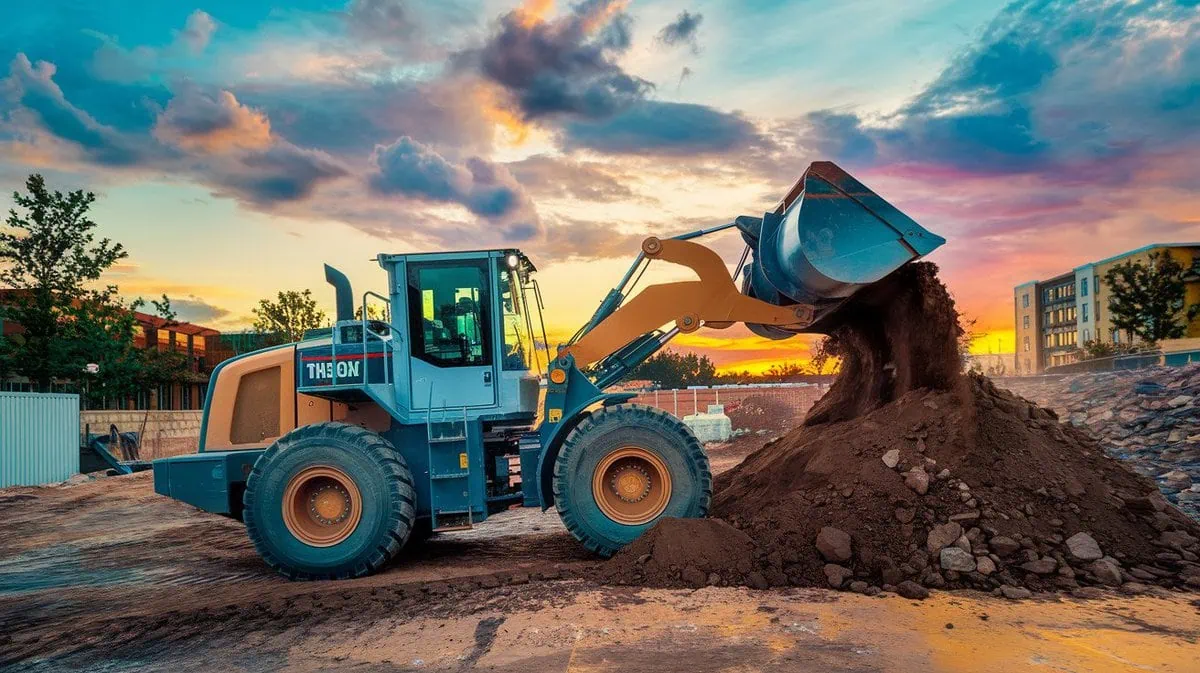Main Categories of Excavators
Excavators are essential machinery in construction, classified by weight and purpose. Understanding these categories will help you with how to choose right excavator for various job sites, thereby enhancing work efficiency.

Excavators are primarily categorized into mini (1-5 tons), small (6-10 tons), medium (10-30 tons), and large (over 30 tons). Mini excavators excel in tight spaces; small excavators provide moderate power for small to medium tasks; medium excavators are versatile for construction projects; and large excavators are designed for heavy-duty applications like mining and major earth-moving.

Mini excavators are ideal for projects requiring precise digging in confined areas, such as landscaping and utility work. Their compact size allows for easy maneuverability in tight job sites. Small excavators strike a balance between size and power, making them suitable for a range of tasks, including urban construction and small-scale projects. Medium excavators serve as the backbone of the construction industry, capable of handling various tasks like pipe laying and road construction. Large excavators, known for their impressive digging capabilities, are suited for high-load tasks such as mining and large-scale earthmoving, though they do come with higher fuel and maintenance costs that need careful consideration during selection.
How to Choose Excavator Types Based on Project Needs

Choosing an excavator involves more than just considering weight; you must also take into account the job site conditions, project scale, and specific work requirements. Making an informed choice will help you reduce costs, improve work efficiency, and avoid resource waste.
When selecting an excavator, first clarify your project requirements. If your project demands work in tight spaces or precise digging depths, a mini excavator is recommended; midi excavators are suitable for most earthmoving tasks; for large industrial projects, a large excavator is the most efficient option.

For small-scale municipal or residential development projects, mini excavators are often the best choice. For example, they excel in underground pipeline installation and drainage ditch excavation, where precision and ease of operation are crucial. Midi excavators are well-suited for daily earthmoving tasks, offering simple operation, transport convenience, and relatively low fuel consumption. Large excavators are indispensable for mining or large hydraulic engineering projects due to their significant digging capability and large bucket capacity. However, you also need to consider the load-bearing capacity of the site and the transportation requirements of the equipment to ensure smooth access to the job site.
Performance Comparison of Different Excavator Brands
The market is filled with various excavator brands, each with unique technical characteristics and advantages. Choosing the right brand can help you achieve a higher cost-performance ratio and work efficiency.

CAT, Komatsu, Sany, Volvo, Hitachi, Hyundai, Doosan et Kubota are popular excavator brands in the market. CHAT excavators are known for their robust hydraulic systems and durability; Komatsu excels in fuel efficiency and environmental technology; Nombre is favored for its low maintenance costs and excellent value; Volvo offers advanced safety features and ergonomic designs for operator comfort; Hitachi provides reliable performance and strong digging power; Hyundai combines innovation with competitive pricing; Doosan is recognized for its durability and efficient operation while Kubota is ideal for compact solutions with high versatility.

CAT (Caterpillar) 320D: This midi excavator is renowned for its high-strength structure and efficient hydraulic system, making it ideal for earthmoving and infrastructure projects. The 320D features a large bucket capacity and high work efficiency, suitable for heavy soil transport needs.

Komatsu (KOMATSU) PC130: A classic small excavator, the PC130 is known for its energy-saving, environmentally friendly, and stable performance. Its optimized hydraulic system provides efficient working capabilities in various conditions, making it suitable for urban construction and foundation work.

Sany (SANY) SY215C: This excavator is celebrated for its high cost-performance ratio, making it suitable for medium and small engineering projects. The SY215C has low maintenance costs and excellent fuel economy, ideal for cost-sensitive users.

Volvo (VOLVO) EC480D: This large excavator boasts exceptional fuel efficiency and stability, making it suitable for urban and rural infrastructure projects. The EC400D features advanced control systems, enhancing comfort and reducing operator fatigue.

Hitachi (HITACHI) ZX210LC-6: This excavator is widely favored for its reliability and strong working capability, suitable for heavy earthmoving and mining tasks. The ZX210LC-6’s technical features include an efficient hydraulic system and a comfortable driving environment.

Hyundai (HYUNDAI) Robex 210LC-9:This excavator combines high performance and comfort, making it suitable for various construction environments. The Robex 210LC-9 excels in fuel efficiency and operational flexibility, making it an ideal choice for medium and small construction projects.

Doosan (DOOSAN) DX225LC: This midi excavator offers high performance and economic value, particularly suitable for construction and infrastructure projects. The DX225LC is built robustly to handle various challenging conditions.

Kubota (KUBOTA) U35: This mini excavator is favored for its flexibility and high cost-performance ratio, suitable for small projects and confined space work. The U35 is easy to operate and maintain, making it ideal for projects requiring frequent relocation.
Operating Costs and Selection Advice for Excavators
The operating costs of excavators include not only the initial purchase price but also ongoing expenses such as fuel consumption, maintenance, repairs, and parts replacement. Therefore, when selecting an excavator, you must consider these long-term costs comprehensively.
Operating costs for excavators generally correlate with weight and workload. While large excavators offer significant operational capabilities, they also incur higher fuel and maintenance costs. Midi excavators strike a balance between efficiency and cost, making them a more cost-effective choice.

Large excavators incur high operating costs, particularly for fuel and maintenance. Mini excavators, while fuel-efficient, have limited capacity and are best for small projects. For frequent or long-term tasks, medium-sized excavators offer a balance of fuel economy and efficiency. Additionally, brand differences in fuel consumption and maintenance can impact long-term expenses, making energy-efficient brands preferable. For short-term projects, leasing equipment can reduce upfront costs and save money.
Tendances futures de la technologie des excavatrices
The excavator industry is continually innovating, with automation, smart technology, and green energy solutions gradually transforming this traditional sector. Understanding these new trends will help you make more forward-looking choices when purchasing equipment.

Future excavators will place greater emphasis on automated operations, green energy usage, and efficient work practices. Smart excavators equipped with advanced sensors and control systems can enhance work precision and reduce fuel consumption.

With increasing environmental awareness, more manufacturers are developing electric excavators to reduce carbon emissions and noise pollution. Automation and remote control technologies are gradually penetrating the excavator industry, significantly improving safety and work efficiency through unmanned operating systems or intelligent assistance. In the future, the application of 5G technology and the Internet of Things will further drive the smart development of excavators, enabling remote monitoring and data management to enhance operational efficiency. Additionally, as energy structures evolve, new energy excavators are expected to become mainstream in the market, helping enterprises reduce fuel costs and environmental pressures.

Résumé:
Choosing an excavator involves more than considering project size; you must also assess equipment type, brand performance, and long-term operating costs. Understanding the models and features of various brands, along with the latest technological trends, will enable you to make more forward-thinking decisions, achieving greater construction efficiency and economic benefits.






